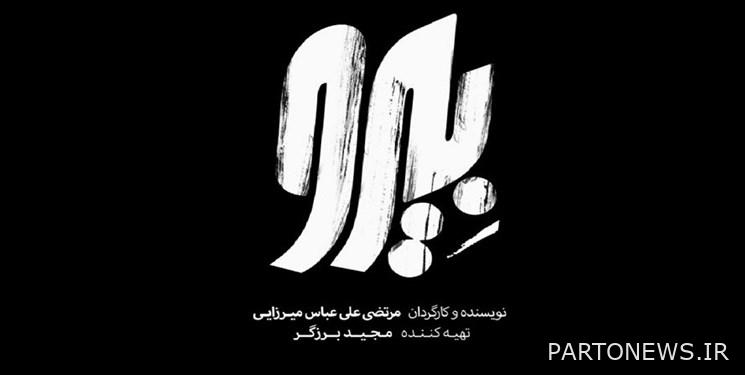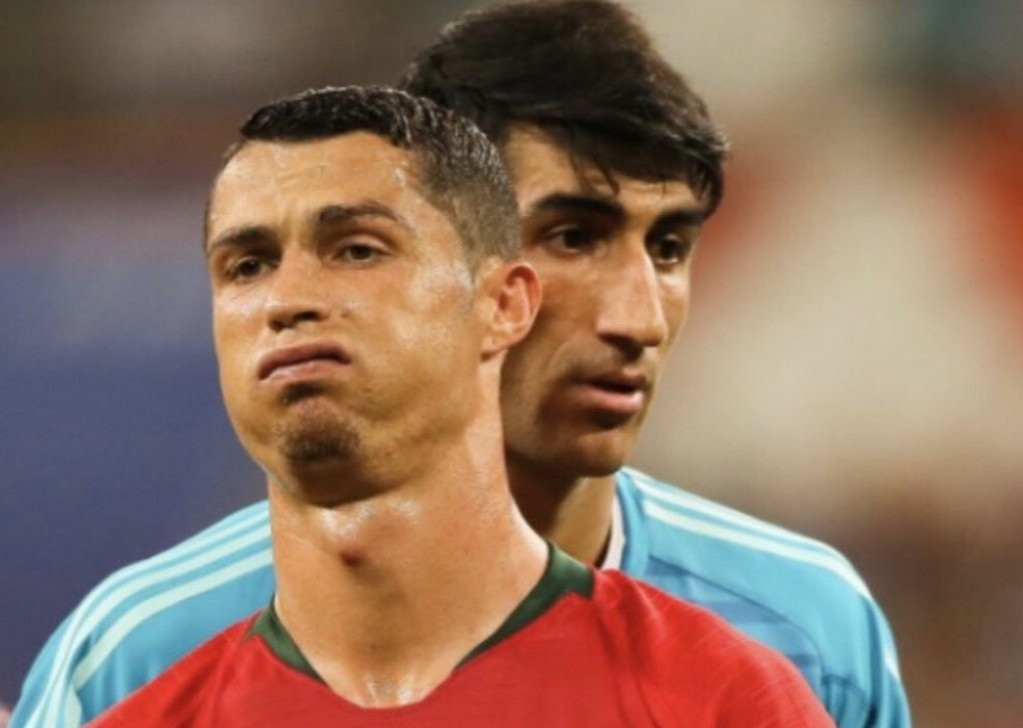Representation of “Bureau” in the absence of cultural phenomenology / football and the identity of regions neglected by the director

According to the Fars News Agency cinema reporter, the 40th Fajr Film Festival started at the Milad Tower Conference Center with a larger population than last year with the screening of the football film “Beiro”.
The last film of Morteza Ali Abbas Mirzaei’s career is a football drama about Alireza Biranvand. A football player who spent his childhood and adolescence in absolute deprivation and poverty, he grew up in football and traveled to Tehran to achieve his goal, and finally found his way to the best teams in the country and became the first goalkeeper of the national team for many years. In the meantime, it was undoubtedly a turning point in Biranvand’s life at the 2018 World Cup in Russia. When he saved Ronaldo from the penalty spot.
It was then that many media outlets turned their attention to Alireza and focused more on his childhood and adolescence. The story of Biranvand’s hard life became the subject of world-renowned publications at the World Cup, and now his life has become the subject of a film. Abbas Mirzaei, the director of the film Biro, has won an award in the manifestation of national will at the 37th Fajr Film Festival in his previous experiences. The film is produced by Majid Barzegar and forty percent of its production is funded by the Farabi Foundation.
In the first decades after the Islamic Revolution, only a handful of sports films were made; in the last decade, however, several films were made in this genre, most of which were critical of the current state of sports in the country.
The story and narration of the film Beyro is centered on the life of Alireza Biranvand. Biranvand has come from a deprived village and region and has continued on his way despite all oppositions. In this steep path, he is doing everything to achieve his goals. He swept, worked in a car wash, slept in a restaurant, and even spent many nights on the street in the morning so that Bell could pursue his goal.
If we want to look at the film “Bureau” from the perspective of the genre, the rules of the genre, ie epicism, excessive use of music and exaggeration, have been observed, however, the result is a bit like comic strips and full of designed and fantasy exaggerations. In general, the film “Biro” is aimed at impressing the audience, and although it follows the rules of the genre, it is not a thought-provoking work and has not been very successful in its intended direction. In the following, we will deal with two neglected issues in this film.
The main weakness of the film can be attributed to the lack of research in the two fields of “football” and “sociology” of ethnic groups. Many works of art today are research-oriented; That is, the artist prepares in-depth studies on the subjects of his work of art before doing the work. The rejection of the main signs of the film makes it quite clear that the outside film lacked a research section, because if this had happened, the rejection would have been extended to the film as well. Hence, it seems that the main problem of Biro’s film is “forgetting the culture around the main protagonist of the story”.
Football is a kind of theater of identity – family, tribe, city, nation; But the representation of identity in its ever-twisting forms is a declining and doubling variable. Outside, however, the film ignores all of these assumptions and puts them in parentheses. Therefore, in this film, we are confronted with exaggerated characters, lifeless and without the slightest trace of geography and texture of life, etc., and this has caused a fundamental crisis in the film. The artificial subculture, the artificial father, and ultimately the artificial hope, cannot describe the lived experience that the hero has had in the real world.
In the final analysis, the outside film is far from the two main themes that the film pursues: far from the essence of football and local regional identity; That is, the director has little knowledge of what football is, nor does he know the local identity of the region from which his champion originated. Although he is in the sports genre, Biro has reduced football to a very individual matter and has sacrificed the collective spirit of football to highlight his hero. A hero who is extremely homeless. To know the cultural background of Alireza Biranvand, it is enough to have a brief encounter with these players. Biranvand interviews in recent years have always been a manifestation of Biranvand from a special cultural position. As one of the great tribes of Lorestan, Biranvand tribe, like many other parts of this province, is full of rituals, games and lived world; But the film Beyoncé not only ignores them, but reduces all that rich and ancient culture to the character of the father, who is exaggerated and humorously abused and bullied. A father we know nothing about except that he is poor and very angry. The other characters in the film are all in the same situation. An uncle who, by any measure, can not be attributed to the father under the family resemblance. A mother who has no other choice but to shed tears and be an emotional cliché, as well as Biranvand’s cousin (wife), who is no longer completely separated from her biogeography. He does not even have a Lori accent and speaks Persian. However, the father’s language or dialect has little to do with Larry. The mother outside is also anonymous and unintentional, and this feature has overshadowed each and every one of the characters. To clarify the story more accurately, we will use Biranvand’s strange “throwing hands” as an example. In the film, in the very first game after his presence in Tehran, this hand throw is highlighted, but because the film ignores the local ethnic living background, he does not know the reason for these unique throws and therefore does not explain it to the audience. Suddenly we see a teenager throwing the ball into the opponent’s goal. While Biranvand has repeatedly pointed out that these throws are rooted in some of the native and local games of the Lors. Due to the geographical conditions, many Lore games are associated with stone. It seems that these games were rituals (such as rain prayers) that have lost their ritual nature over time and today it is referred to as local games. In fact, the game of “slab throwing”, which is completely based on the power of the hand and throwing stones, has caused this teenager to have such terrible throws. This one example is enough for many of the film’s micro-topics. The filmmaker from the whole nomadic culture of Biranvand life shows only a wrong dance and a kind of caricature that is repeated several times in the film. Another point that proves the lack of research is not using the rich music of Lorestan. Lorestan music is so tied to the lives (music of work, mourning, mourning, etc.) of nomadic people that they can not even be imagined without each other; But in the outside film, this capacity is also enclosed in parentheses and ignored. It can not be claimed that the film “Portrait” was made, but the main figure and the hero were represented without the slightest relation to his socio-cultural status.
It is true that the film speaks of having hope and striving for success, but this hope and this effort is defined without any cultural context; And so it can not be believed. Outdoor film could have led us to a glimpse of time, space, identity, drama, and all the elements defined under “mysterious sensory life,” but due to a lack of proper research, it has been left out of the screenplay.
As mentioned, in addition to the culture surrounding the life of the film’s protagonist, “football culture” has also been ignored. Football is about many things. Very complex, contradictory, and contradictory things: memory, history, place, social class, family identity, tribal identity, national identity, the nature of groups, all groups of players and all groups of fans, and the often violent but sometimes calm and admirable relationships between our group and other groups; But none of these features were seen in the film outside.
Football is a movement of a small social unit, that football is so important to some of us precisely because of the collective experience that runs through it and the clear picture it gives of society. I believe that the way to live and truly succeed is through group effort, so that everyone works together, everyone helps each other, and in the end everyone shares in the rewards earned. This is perhaps the most fundamental and profound contradiction of the outside film. The form of football is shaped by the community, the collective spirit and the group action of the players and the fans, and at the same time its material sub-layers are money. Football has become a commodity and has sunk into the financial support of brands.
Contrary to what can be seen in the film Beyro, football is not individualistic. There is no doubt that it is ruled by a star-studded and celebrity-oriented system through which players want to achieve as much economic independence as possible. But football is not just the story of single players. No matter how talented they are; In football it is the team that matters. Football is inherently a team in which the movement of the players who play together and form the fluid space network of the team is important. With these details, each team can rely on really talented single players, or on less talented people who act like an intertwined group. Important in this regard are the general rules of the common language of football, which is spoken when playing.

Football is a scene in which the sometimes vague mechanisms of destiny remove the mask from the face. However, Beyro’s film has not been able to approach the core, texture and existential matrix of Alireza Biranvand’s personal experiences as they have happened. Therefore, new light does not reflect how we see so that we can look at his adventures from a new angle and a new perspective. The problem is not only that we face a slight deviation, but the whole purpose of the film is forgotten.
End of message /
You can edit this post
Suggest this for the front page

